Iron & Vitamin Supplements for Anemia


Anemia is a common health issue caused by a deficiency of red blood cells or hemoglobin, which reduces the oxygen-carrying capacity of the blood. It often stems from low iron, B12, or folic acid levels. If left untreated, it can lead to fatigue, weakness, and poor immunity. This blog covers the top iron & vitamin supplements for treating anemia, their roles, and how they help restore your health.
What nutrients are essential for treating anemia?
Treating anemia requires a combination of iron and key vitamins that support red blood cell production. The most important nutrients include:
- Iron – Forms hemoglobin and supports oxygen transport in the blood.
- Vitamin B12 – Aids in the formation of red blood cells and maintains nerve health.
- Folic Acid (Vitamin B9) – Crucial for DNA synthesis in developing blood cells.
- Vitamin C – Enhances iron absorption from food and supplements.
Together, these nutrients improve red blood cell count and help manage the symptoms of anemia effectively.
How do iron supplements help treat anemia?
Iron supplements are the first line of defense for iron deficiency anemia. They work by:
- Replenishing depleted iron stores in the body
- Promoting the production of healthy red blood cells
- Increasing hemoglobin levels to improve oxygen supply
With consistent use, individuals often report higher energy levels, better focus, and reduced fatigue within a few weeks.
Which vitamins should be combined with iron for better absorption?
Taking iron alone is not always enough. It works best when paired with certain vitamins that support absorption and blood formation:
- Vitamin C: Significantly boosts iron absorption in the intestine
- Vitamin B12: Helps prevent megaloblastic anemia and supports nerve health
- Folic Acid: Particularly important during pregnancy and in individuals with poor dietary intake
Using a combination of these nutrients improves results and helps treat the root cause of anemia, not just the symptoms.
What are the best natural sources of iron and vitamins for anemia?
If you prefer a dietary approach, include the following iron-rich and vitamin-rich foods in your daily meals:
| Nutrient | Food Sources |
|---|---|
| Iron | Red meat, spinach, lentils, tofu, pumpkin seeds |
| Vitamin B12 | Eggs, dairy products, fish, fortified cereals |
| Folic Acid | Leafy greens, citrus fruits, beans, peas |
| Vitamin C | Oranges, guavas, strawberries, bell peppers |
A balanced diet with these foods can help manage mild to moderate anemia. However, severe deficiencies often require supplementation.
Best Iron & Vitamin Supplements for Anemia
| Product Name | Key Benefits |
|---|---|
| Rich Run Iron Supplement Capsule | Helps increase hemoglobin and treat iron deficiency. |
| Richrun Iron Syrup | Tasty iron syrup for kids and adults; boosts iron levels. |
| Feriext FA Iron Supplement Tablet | Combines iron and folic acid to fight anemia and fatigue. |
| Zeefron Capsule | Promotes red blood cell production; treats iron deficiency. |
| Zeefron AD Soft Gelatin Capsule | Enriched with iron, vitamins A & D for complete anemia support. |
| Zeefron S Injection | Used in clinical settings for quick anemia treatment. |
| Zecobax Z Multivitamin Capsule | Provides essential multivitamins that support iron absorption. |
| Vitazem Veg Tablet | Daily multivitamin support for immunity and energy. |
| Multiprex Syrup | Combines iron and vitamins to help restore vitality. |
| Multiprex Soft Gelatin Capsule | Rich in multivitamins and iron to manage weakness. |
Who should consider taking iron and vitamin supplements for anemia?
Iron and vitamin supplements are especially useful for people at high risk of deficiencies, such as:
- Women with heavy menstrual bleeding or during pregnancy
- Vegetarians and vegans, due to limited sources of B12 and heme iron
- Elderly individuals, who often face absorption issues
- Patients with chronic illnesses or digestive disorders
- Athletes, due to higher iron demand from intense training
In these cases, supplements can help prevent or correct anemia more effectively than diet alone.
What precautions should be taken when using iron and vitamin supplements?
Although these supplements are generally safe, it's important to use them properly:
- Take iron with food, but avoid dairy or calcium.
- Avoid consuming tea or coffee with iron, as it may block absorption
- Monitor your iron levels with blood tests to avoid iron overload
- Keep supplements away from children—iron overdose is toxic.
- Consult your doctor before starting supplements, especially with other medications.
Frequently Asked Questions
Q. Can I take iron and vitamin supplements daily?
A. Yes, but only under a doctor’s supervision. Overuse can cause side effects or toxicity.
Q. How soon will I see results after starting iron supplements?
A. Most people feel better in 2–3 weeks, but full recovery can take up to 3 months or more.
Q. What are the common side effects of iron supplements?
A. Nausea, constipation, or dark stools are common. Taking iron with food usually helps.
Q. Can I treat anemia through diet alone?
A. Mild anemia may improve with diet; severe cases need supplements.
Q. Is vitamin C really necessary with iron?
A. Yes, vitamin C enhances iron absorption, making treatment more effective.
Conclusion
Anemia is a manageable condition when addressed early with the right combination of iron and vitamin supplements. These nutrients not only correct deficiencies but also restore energy, stamina, and overall well-being. For best results, combine supplements with a healthy, nutrient-rich diet and regular check-ups. Always consult a healthcare provider before beginning any supplementation program.
Iron (100 mg) + Folic Acid (1.5 mg) + Vitamin B12 (0.0075 mg)
10 Tablets In 1 Strip
Iron (60 mg) + Folic Acid (1 mg) + Vitamin B12 (0.005 mg) + Lysine (70 mg)
200 ml. Syrup
Iron Carbonyl (100mg) + Folic Acid (1mg) + Vitamin B12 (5mcg) + Zinc (25mg)
15 Capsules in 1 strip
Whey Protein (5 gm) + Vitamin B2 (0.1 mg) + Vitamin B12 (0.13 mg) + Folate (8 mg) + Iron (2.9 mg) + Phosphorus (30 mg) + Magnesium (20 mg) + Manganese (0.1 mg) + Arginine (50 mg) + Ashwagandha (50 mg) + Mushroom (50 mg) + Taurine (25 mg) + Flax Seeds (30 mg) + Proanthocyanidin (75 mg) + Ginger Powder (20 mg) + Green Tea Powder (30 mg) + Olive Extract (30 mg) + Raspberry Fruit Powder (30 mg) + Grape Seed Extract (30 mg) + Giloy Extract (30 mg) + Walnut Extract (30 mg) + Pumpkin Seeds (30 mg) + Cashew (30 mg) + Chia Seeds (30 mg)
300gm Powder in 1 jar
Ginseng Extract (42.5 mg) + Vitamin A (2500 IU) + Vitamin B1 (1 mg) + Vitamin B2 (1.5 mg) + Vitamin B3 (10 mg) + Vitamin B5 (5 mg) + Vitamin B6 (1 mg) + Vitamin B12 (0.001 mg) + Vitamin C (50 mg) + Vitamin D3 (200 IU) + Vitamin E (5 mg) + Folic Acid (0.15 mg) + L-Arginine (25 mg) + Calcium (75 mg) + Phosphorus (58 mg) + Ferrous Fumarate (30 mg) + Zinc (10 mg) + Magnesium (3 mg) + Potassium (2 mg) + Manganese (0.5 mg) + Copper (0.5 mg) + Iodine (0.1 mg) + Carbohydrate (100 mg) + Protein (20 mg) + Fat (380 mg) + Energy (4.23 kcal)
15 Capsules in 1 strip
Adenosylcobalamin (100mcg) + Carbonyl Iron (100mg) + Folic Acid (1500mcg) + Zinc Sulfate (61.5mg)
10 Capsules in 1 strip
Ferrous Fumarate 250mg + Folic Acid 1.5mg + Zinc Sulphate Monohydrate 50mg Eq. to Elemental Zinc 18.2 mg. + Vitamin B12 10mcg
30 Capsules per jar
Omega-3 Fatty Acids (EPA 90 mg + DHA 60 mg) + Green Tea Extract (10 mg) + Ginseng (42.50 mg) + Ginkgo Biloba Extract (10 mg) + Grape Seed Extract (15 mg) + Glutathione (10 mg) + Lactic Acid Bacillus (500 Lacs Spores) + Citrus Bioflavonoids (20 mg) + Natural Mixed Carotenoids (11.33 mg, 10%) + Vitamin D3 (200 IU) + Wheat Germ Oil (25 mg) + Vitamin K1 (10 mcg) + Vitamin B6 (1 mg) + Vitamin B12 (1 mcg) + Thiamine (1.4 mg) + Niacinamide (18 mg) + Ascorbic Acid (40 mcg) + Folic Acid (120 mcg + 30 mcg) + Choline Hydrogen Tartrate (25 mg) + Lutein (250 mcg, 10%) + Piperine (5 mg) + Calcium (20 mg) + Phosphorous (15.45 mg) + Iron (10 mg) + Zinc (12 mg) + Iodine (120 mcg) + Magnesium (30 mg) + Manganese (1.5 mg) + Copper (0.5 mg) + Chromium (50 mcg) + Molybdenum (25 mcg) + Selenium (20 mcg) + Potassium (4 mg) + Chloride (3.6 mg) -
15 Capsules in 1 strip
Vitamin A (600 µg) + Vitamin B1 (1.2 mg) + Vitamin B2 (1 mg) + Vitamin B6 (2 mg) + Vitamin B12 (1 µg) + Vitamin C (40 mg) + Vitamin D (5 µg) + Vitamin E (10 mg) + Biotin (30 µg) + Folic Acid (120 µg) + Niacin (18 mg) + Pantothenic Acid (4.5 mg) + Calcium (50 mg) + Iron (10 mg) + Magnesium (50 mg) + Zinc (0.73 mg) + Selenium (50 µg) + Lycopene (500 µg) + Beta Carotene (2 mg) + Lecithin (10 mg) + L-Lysine (5 mg) + L-Arginine (30 mg) + L-Glutamic Acid (20 mg)
15 Tablets in 1 strip
Recent Blogs
Disclaimer : Zeelab Pharmacy provides health information for knowledge only. Do not self-medicate. Always consult a qualified doctor before starting, stopping, or changing any medicine or treatment.

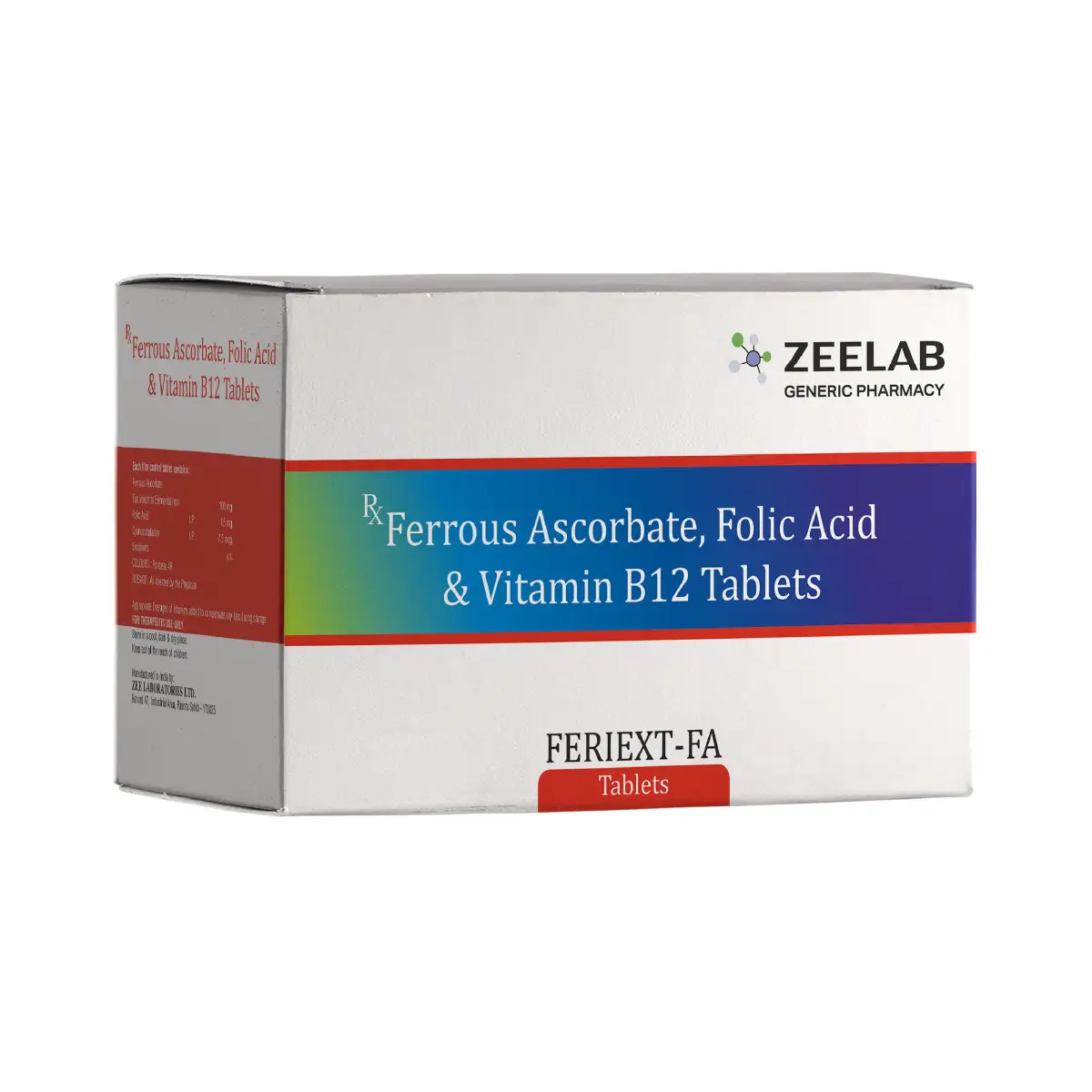
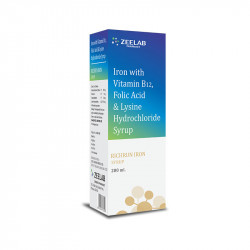
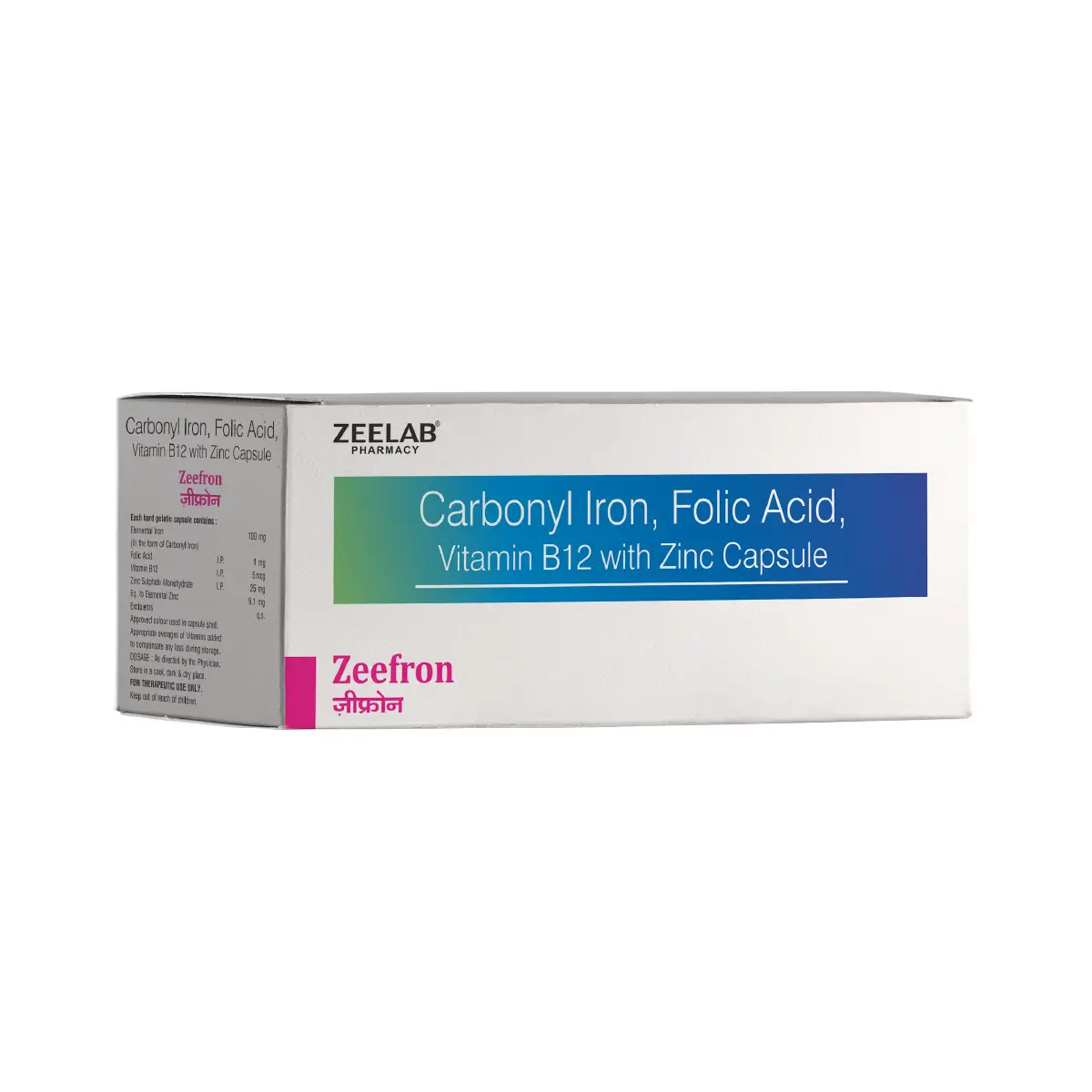
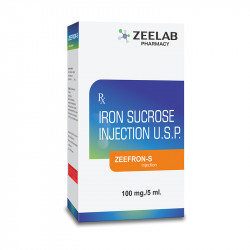
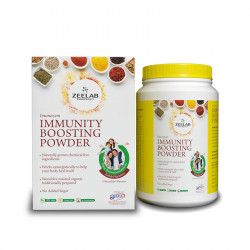
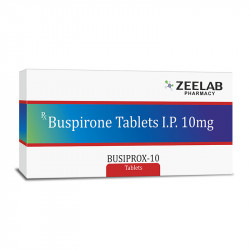
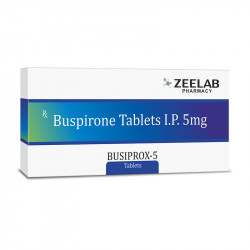
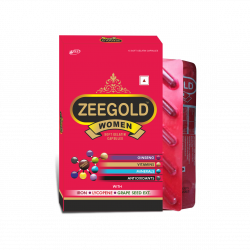
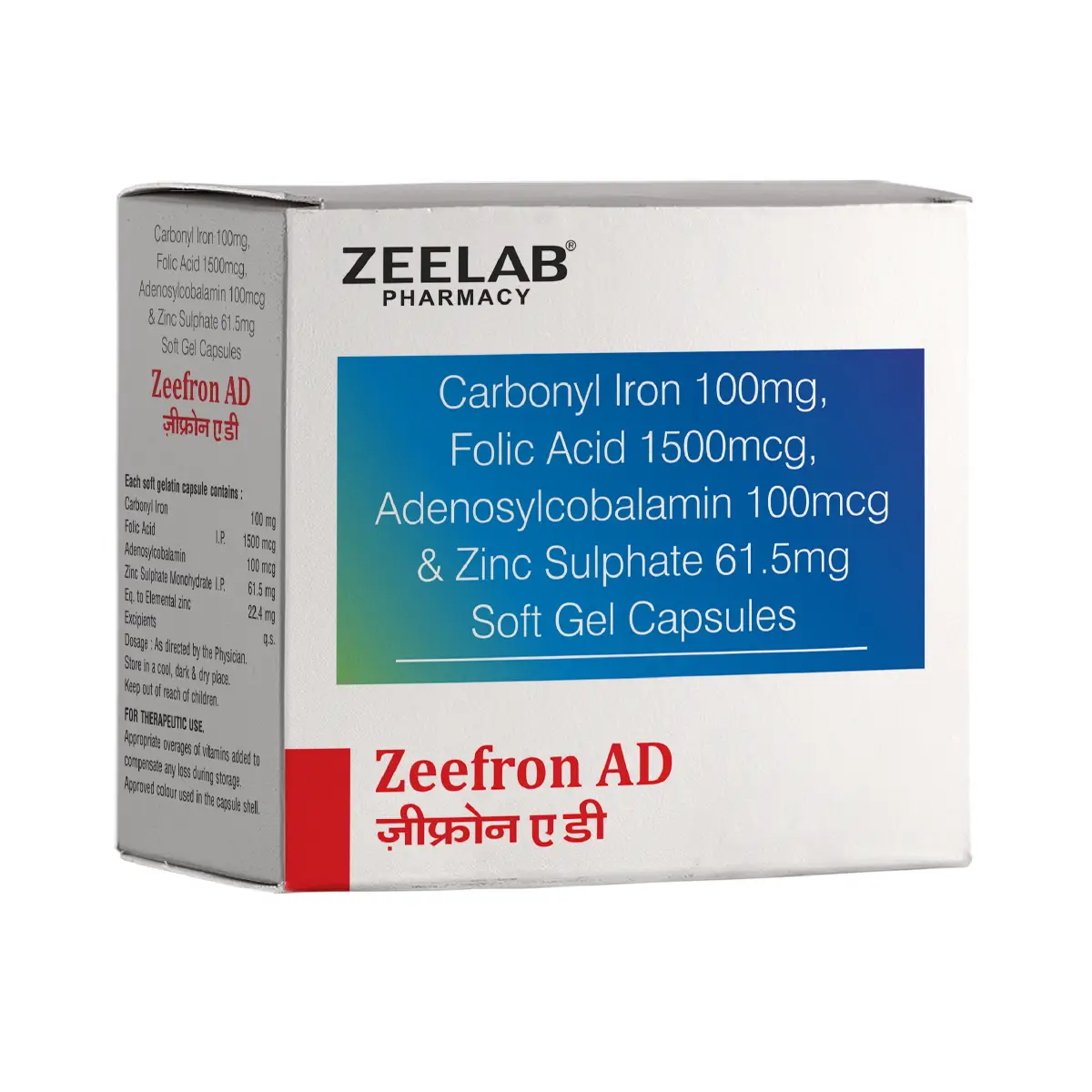
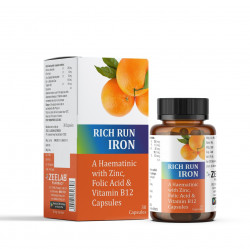
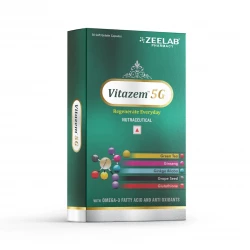
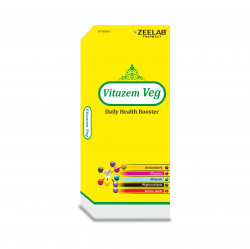
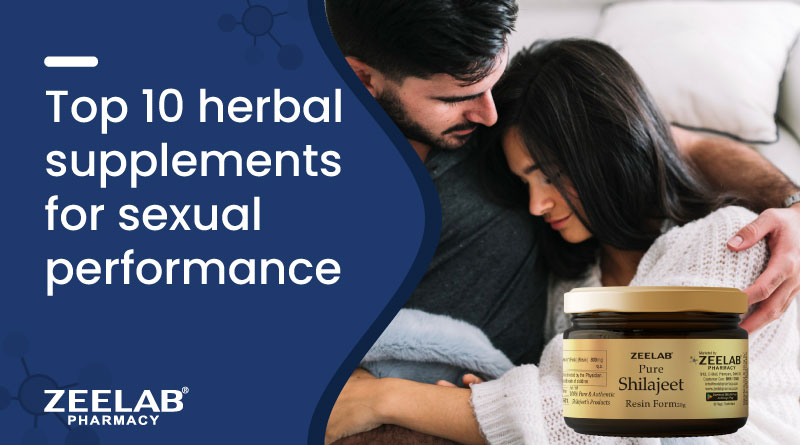
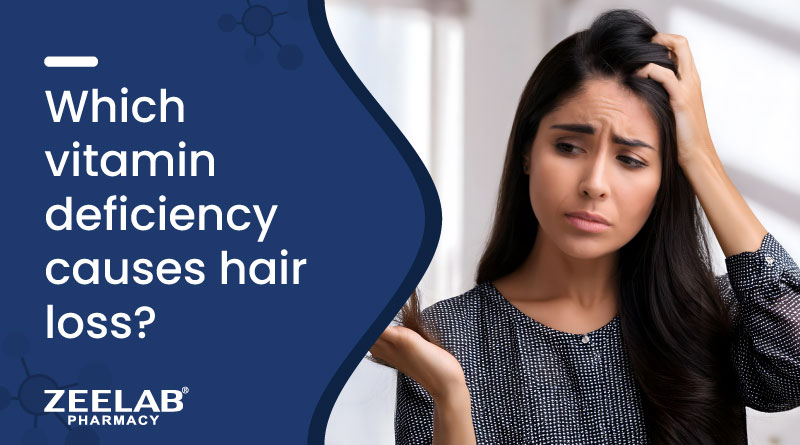
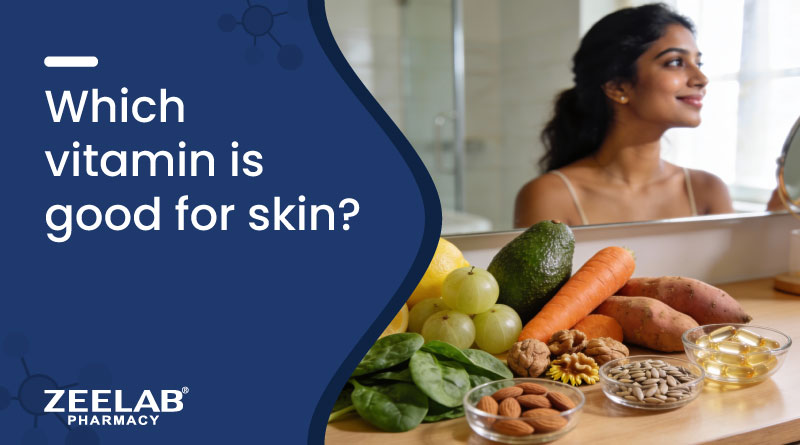
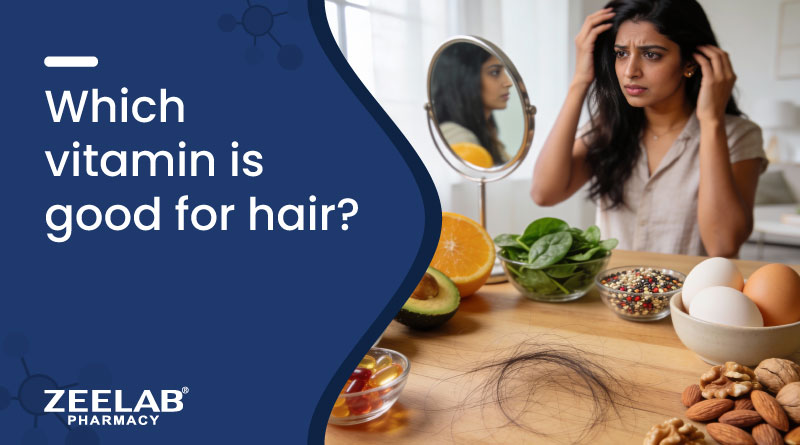
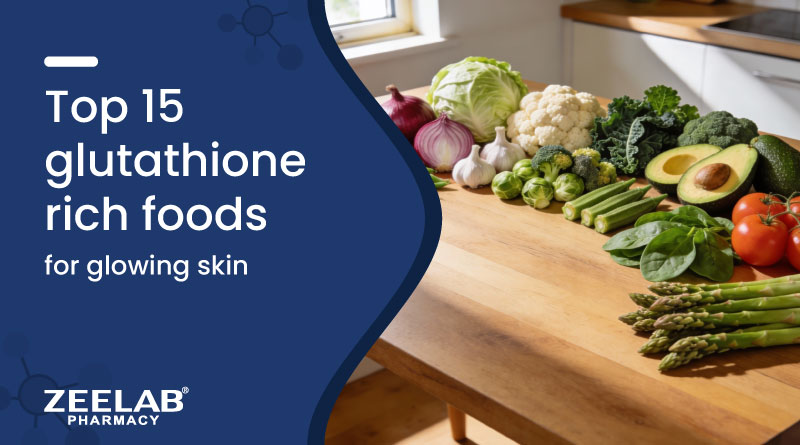
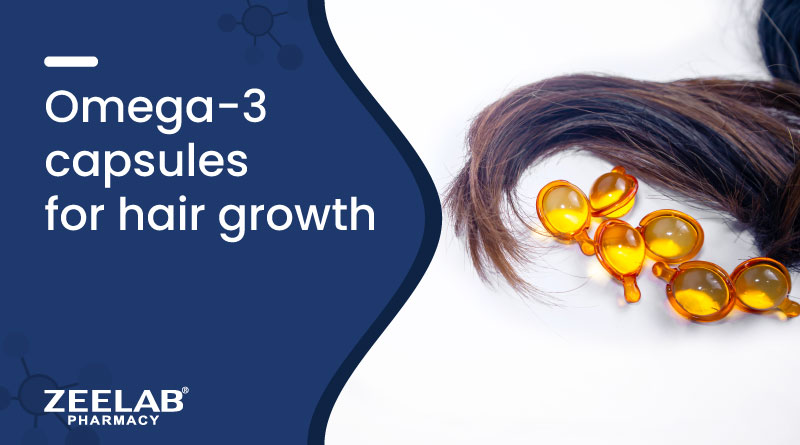









 Added!
Added!